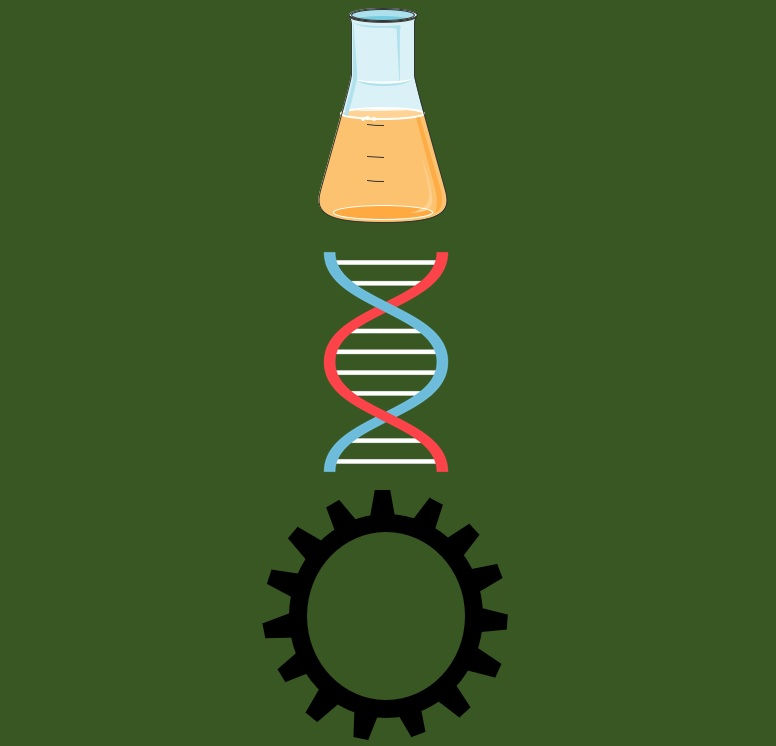2ºBACH Future foods/ Wish Clauses/3rd Conditionals/ Tips EVAU
- LOIDA GARRIDO

- Jan 17, 2021
- 4 min read
Updated: Sep 3, 2024
SESSION 1
FUTURE FOODS

To melt the ice...
...both literally and metaphorically, we will start this week checking our predicting powers...with respect to food. What will we eat in the future?
Sustainability is again a priority. One example of the scientific advance being achieved to this respect is Synthetic biology (SynBio). Synthetic biology, which we define as the application of engineering principles to small organisms, often via the manipulation of DNA, offers a new way to fabricate the same goods.
Watch this video to know more:

Right now, investors are betting that new cell-produced products could replace many industrial and chemical processes in food, fuel, medicine, proteins, and materials, except with far fewer inputs and negative side effects. Examples:

(taken from: http://buildingwithbiology.org/about-syn-bio)
With population growth and climate change, we might have to radically change our diets in the future. There are all sorts of developments going on to help feed us in the future, from growing artificial meat to developing insect-based foods.
1. Listen to this radio program about the future of food and answer the questions:
1.- In which continent did tomatoes originate? Is it…
A: South America
B: Africa
C: Asia
2.- What does a futurologist do?
3.- What two things does the futurologist, Dr Morgaine Gaye, think about?
4.- Match these words with their definitions:
trend to latch onto a hunch
a feeling you have based on your knowledge and experience that something might be true even though you don’t have any real evidence
a way to refer to something that is popular now or that is becoming popula
become very interested in
5.- Why are there restrictions on the subject of food?
6.- What does the statement "the laws are very stringent" mean?
2. Read this article and write a 150-word essay explaining how food production will sustainably feed the world and also reduce economic inequality in the future:
SESSION 2:
WISH OR IF ONLY

Have you ever made a wish?
Question: What did you wish for? Did it work? Do you believe in the power of intention?
Today we will dive into unreal situations expressed by wish or if only clauses. What other structure that you have seen already do you connect with wish clauses? In this particular case, there is no consequence or result, you just express the wish, which is very close to our ojalá!

Let's listen to Maddie, our assistant, who has prepared a nice presentation on this topic and will explain the mood of this type of expressions. Pay attention and then check your understanding doing the following exercises:
B. How would you change these situations? Use wish or if only.
Alisson has been working in the same position for ages but has not been promoted yet (......)
Your sister has borrowed your favorite jeans without permission (......)
Your neighbor plays loud music every day and you can't study (.....)
Peter is fed up of commuting to work (.....)
You love snowy days but the last snowfall did not let you meet your friends for days! (......)
SESSION 3:
WHAT IF: THIRD CONDITIONALS
We have been dealing with wish clauses lately, these clauses express unreal situations and are directly connected to both Type 3 Conditional Sentences.

1. Listen to Natifah talking about what her life would have been if she had not been a language assistant in Spain.

3. Draw a T-chart and note down key ideas on the left and details on the right. I'm especially interested in the use she does of third conditionals, so write down examples of third conditionals sentences she gives throughout the recording.
4. To drill Third Conditionals, do the following exercise:

SESSION 4:
READING COMPREHENSION EVAU TEST:
SOME TIPS

Do you ever feel overwhelmed while reading? Do you have trouble staying focused and motivated while reading? Do you sometimes have difficulty understanding and remembering what you read? If so, you’re not alone. Don't worry, with some effective strategies, you can make your reading more meaningful and productive.
The truth is that you retain more when you are actively engaged, as opposed to simply reading without a clear purpose. Being engaged forces your brain to interact with the text before, during, and after reading and enhances your attention.
Let's try with Future Food on page 35 from your books Shape the Future 2:
Step 1: You need to find clues about the content. Read the title and observe the pictures.
Step 2: Read the first paragraph. Question: How will food change in the future?
Step 3: Read questions 3 (open questions) and 6 (true/false questions) on page 34 and then listen to the recording while reading. Use a pencil to underline the words you don't understand or key phrases that may be the answer to the questions. After reading, answer exercises 3 and 6.
Step 4: Focus on words! In EVAU test question 3 you have to look for synonyms. Read the definition below:

Let's take the word global as an example:

Now do exercise 5 on page 34, find words in the text that mean:

Step 5: Grammar!
a. If we _________ (hear) the weather forecast, we wouldn’t have gone to the beach.
b. What _________ (you/buy) if you had a credit card?
c. If they ________ (not hurry) up, they will miss the film
d. Rephrasing: rewrite the sentences so that they have the same meaning but using a different construction (in brackets).

For further practice: Rephrasing conditional sentences
Enjoy the rainy weekend! \(^o^)/





Comments